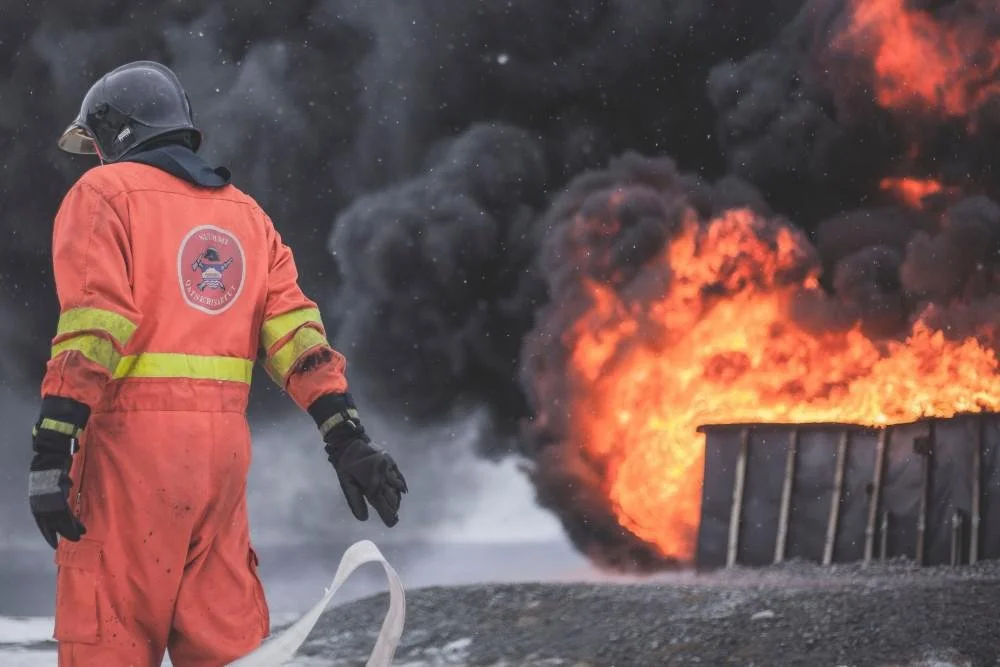The Impact Heat Has on Health
A recent report in Nature Communications found that heatwaves are becoming significantly longer (Perkins-Kirkpatrick & Lewis, 2020). Specifically, heatwaves have been on the rise in both length and frequency in nearly every part of the world since the 1950s. While assumed to be true, it was never fully realized in the scientific literature. Thus, this is another novel finding as it is the first study to look at the issue at a regional level.
True, humans have always experienced heatwaves.
However, the frequency and intensity is what has changed; this nuanced difference has been at the center of controversy of the climate change debate. The reality is that climate change looks different depending on where you are on the map. Perkins-Kirkpatrick and Lewis (2020) found that heatwaves truly vary around the planet, with the Amazon, north-eastern Brazil, west Asia (including parts of the subcontinent and central Asia), and the Mediterranean all experiencing more rapid change than southern Australia and north Asia, for example. Ironically, the only inhabited region where there was not a trend was in the central United States (it’s unclear why there is an anomaly there).
Main takeaway: Climate change is not uniform. It’s chaotic, messy, and unpredictable. But there is a clear trend in the total number of heatwave days within and across regions.
The amount of cumulative intensity across heatwave seasons has increased across the planet over the decades: the average increase per decade was between 1°C and 4.5°C (an increase of between 1.8°F and 8.1°F), though in some locations, i.e. the Middle East, parts of Africa, and South America, the rise appears to be closer to 10°C a decade.
“The time for inaction is over,” the lead author, Perkins-Kirkpatrick, of the report writes. “The dramatic region-by-region change in heat waves we have witnessed, and the rapid increase in the number of these events, are unequivocal indicators that global heating is with us and accelerating.”
Nearly 200 countries, including the U.S., have committed to a collective global response to tackle the climate crisis called the Paris Climate Accord in 2015. They all had agreed that a worldwide response is necessary to safeguard the Earth for future generations.
As a family physician, I can honestly write that the stakes could scarcely be higher. In the period since the Paris agreement was signed, we have seen the five hottest years on record. That’s not a coincidence! If carbon emissions rise any more, the substantial climate change will definitely impact our children and grandchildren’s future detrimentally.
We can each make a difference! The biggest impact a person can make is changing what they choose to place on their dinner plate. Choose fresh wholesome plant-based real food like vegetables, beans, and ancient whole grains versus animal-derived protein such as meat, fish, and/or dairy products to drive the most effective way to decrease carbon dioxide emissions.
Animals in agriculture are the BIGGEST producers of methane (aka., carbon dioxide) -- the DRIVER for CAUSING CLIMATE CHANGE. Cutting down trees throughout our planet for cattle grazing and to grow crops such as wheat, corn, and soy (predominantly used for animal feed) at exponential rates has led to the forests no longer able to soak up the excess carbon emissions. Decreasing our dependence on oil is critical to placate the fossil fuel and food industry while demanding renewable energy sources be of utmost importance.
With your help, we can take collective responsibility for the future of the planet, our home, and our children.
Reference
Cooper, M. (2009). “Death toll soared during Victoria's heatwave. The Sydney Morning Herald.” Retrieved from: https://www.smh.com.au/national/death-toll-soared-during-victorias-heatwave-20141112-9ubd.html
Fischer, E. M., & Schär, C. (2010). Consistent geographical patterns of changes in high-impact European heatwaves. Nature Geoscience, 3(6), 398-403.
Hooper, C. (2019). “Black Saturday is an Australian tragedy that redefined the way we live with fire.” The Guardian. Retrieved from: https://www.theguardian.com/australia-news/2019/feb/02/black-saturday-is-an-australian-tragedy-that-redefined-the-way-we-live-with-fire
Perkins-Kirkpatrick, S. E., & Lewis, S. C. (2020). Increasing trends in regional heatwaves. Nature communications, 11(1), 1-8.
AUTHOR
Dr. Payal Bhandari M.D. is one of U.S.'s top leading integrative functional medical physicians and the founder of SF Advanced Health. She combines the best in Eastern and Western Medicine to understand the root causes of diseases and provide patients with personalized treatment plans that quickly deliver effective results. Dr. Bhandari specializes in cell function to understand how the whole body works. Dr. Bhandari received her Bachelor of Arts degree in biology in 1997 and Doctor of Medicine degree in 2001 from West Virginia University. She the completed her Family Medicine residency in 2004 from the University of Massachusetts and joined a family medicine practice in 2005 which was eventually nationally recognized as San Francisco’s 1st patient-centered medical home. To learn more, go to www.sfadvancedhealth.com.

